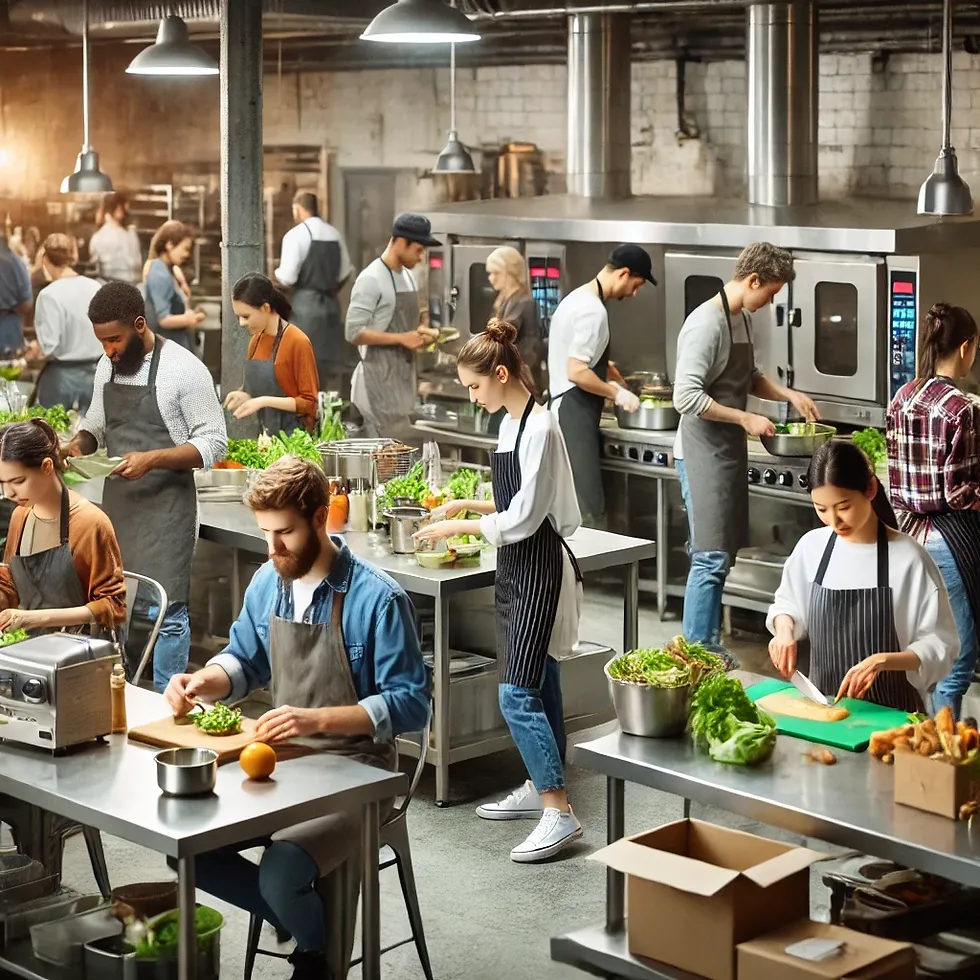
The Cost Breakdown: Shared Kitchen vs. Opening Your Own Space
Starting a food business is an exciting venture, but one of the biggest decisions you’ll face is where to cook. Should you rent a shared kitchen or invest in your own commercial space?
Both options have their benefits, but the cost difference is huge. Let’s break down the numbers so you can see which option is the best fit for your business.
1. Startup Costs: How Much Do You Need to Get Started? 💰
Opening Your Own Commercial Kitchen
Setting up a private commercial kitchen comes with major upfront costs:
Expense
Estimated Cost
Real Estate (Lease or Purchase)
$5,000 – $20,000/month
Kitchen Buildout & Renovations
$50,000 – $200,000+
Equipment (Ovens, Refrigerators, etc.)
$50,000 – $150,000
Licensing & Permits
$2,000 – $10,000
Utilities (Water, Gas, Electricity)
$2,000 – $5,000/month
Insurance & Security
$5,000 – $10,000/year
💡 Estimated First-Year Cost: $200,000+ 😱
Renting a Shared Kitchen (Like La Chow)
A shared commercial kitchen is ready to use, so there are no buildout costs. You pay only for what you need, keeping costs low:
Expense
Estimated Cost
Membership or Rental Fees
$500 – $3,000/month
Equipment (Included in Rental)
$0
Licensing & Permits (Some Provided)
$500 – $2,000
Utilities (Included in Rental)
$0
Insurance
$1,000 – $3,000/year
💡 Estimated First-Year Cost: $10,000 – $40,000 🎉
2. Ongoing Costs: Keeping Your Business Running 🚀
Once you're up and running, maintaining a private kitchen is expensive.
Monthly Costs Comparison
Expense
Your Own Kitchen
Shared Kitchen
Rent/Lease
$5,000 – $20,000
$500 – $3,000
Utilities
$2,000 – $5,000
Included
Equipment Maintenance
$1,000+
Included
Cleaning & Sanitation
$500 – $2,000
Included
Staff (Security, Maintenance)
$2,000+
None Needed
Insurance
$500 – $1,000
$100 – $300
👉 Total Monthly Cost:💰
Your Own Kitchen: $10,000 – $30,000+
💰 Shared Kitchen: $500 – $3,000
💡 That’s up to 90% savings every month!
3. Flexibility: Pay for What You Use
One of the biggest benefits of a shared kitchen is flexibility.
✅ Your Own Kitchen – You’re locked into a long-term lease (often 3-5 years).
✅ Shared Kitchen – You can rent by the hour, day, or month, scaling up as your business grows.
💡 This is great for food startups, meal prep businesses, caterers, and ghost kitchens!
4. Equipment & Maintenance: Who Pays?
✅ Your Own Kitchen – You must buy and maintain all equipment yourself.
✅ Shared Kitchen – All equipment is provided and maintained for you (ovens, fridges, prep tables, etc.).
💡 Shared kitchens save you from expensive equipment breakdowns!
5. Licensing & Compliance: Avoid the Hassle!
✅ Your Own Kitchen – You must handle health permits, fire safety, and inspections yourself.
✅ Shared Kitchen – Already health department-approved, making it easier to launch!
💡 At La Chow, we handle compliance so you can focus on cooking!
Final Verdict: Which Option is Best? 🏆
If you have $200,000+ to invest, a private kitchen might be for you.
But for most food entrepreneurs, a shared kitchen is the smartest, most cost-effective choice:
✅ Lower startup and monthly costs
✅ No expensive equipment to buy
✅ No long-term lease commitments
✅ Health department-approved space
💡 La Chow Shared Kitchen gives you everything you need to start and scale your food business—without breaking the bank!


